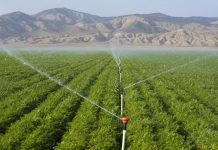Africa-Press – Namibia. Our lives have changed fundamentally since March 2020, our patience has been tested, our resolve frayed, the loss of human life deeply etched in our consciousness. And yet, we have demonstrated resilience, resolve, tenacity and an appreciation of the fragility of life.
Namibians have suffered some of the toughest lockdown restrictions as a result of the global pandemic, and a tired nation is looking desperately ahead to a time without masks, social distancing and restrictions on trade, entertainment and travel to ease their personal suffering. For most sectors, technology has proven to be at the heart of business continuity and recovery, amid far-reaching changes to the environment in which they operate. More than that, technology is pervasively recognised as key to the reinvention of business in the wake of the pandemic. Now is the time for reimagining the economy, and this isn’t the time to play games with our country’s future. This is a time to overcome Covid-19, protect the vulnerable and save jobs. Business leaders need to take a leap of faith by reimagining the future, re-planning their strategies and adopting an entrepreneurial mindset for recovery. I believe Namibia’s economic recovery must be based on strengthening essential industries like energy, agriculture, manufacturing, construction and mining.
These are critical industries that are the backbone of Namibia. Strength in these areas can provide hope and stability in all sectors of our economy, especially during these challenging times. It is time to reimagine a better Namibia for all, not just the rich. Now is our moment to change that to invent a future of work that works for everyone. It will take continuous commitment, collective action and many steps. The time for idle talk is now over as everything comes down to implementation if the country is to realise the vision of the National Development Plans (NDPs), HPP’s and Namibia’s much-awaited Sovereign Wealth Fund. This means that we need to prioritise. We need to focus on those actions that will have the greatest impact, actions that will catalyse faster movement forward. It is an opportunity to reimagine Namibia in a way that it saves the broader majority, to solve unemployment, poverty and to have better economic growth. There is a critical need to inject income into households. Because we know that there is a high correlation between being poor and working in the informal sector, without this support we are pushing a big group into destitution.
The government should pursue key interventions to expand the agriculture and agro-processing sector, by supporting key value chains and products, developing new markets and reducing our reliance on agricultural imports. The government should focus on small and medium enterprises in our rural areas, and create market places where they trade their products. Government should be committed to supporting the tourism industry’s revival. To support the informal sector beyond the pandemic, the government should introduce various measures that are best-suited for the informal sector.
These include easing conditions for funding, formalising the sector through the availability of adequate infrastructure, and upskilling informal workers for the sector to be more sustainable. This will further assist in the transition of unskilled workers from the informal economy to skilled workers in the formal economy.
In Namibia, this is evident in its NDP’s and HPP’s, where tourism is listed as one of the interventions for rebooting the economy. The focus should be on the industry’s macro-level issues such as how tourism can build a resilient post-Covid-19 business industry, how it can create a growth path for recovery and how the hospitality industry navigates the regulatory environment in creating sustainable investment opportunities in Namibia. Our recovery will require a concerted action in building towards a shared vision for Namibia. It is the time to recover from setbacks, limit the further deterioration of our hardest-hit sectors and boost investment in areas where we can benefit from accelerated growth. More precisely, our efforts need to focus not just on recovering from the devastating economic impact of the pandemic, but on a future for Namibia where we are building a digital, sustainable and innovative economy for all Namibians.
At this critical juncture, what Namibia needs is a two-pronged strategy to successfully navigate the current crisis and recover strongly thereafter to minimise the damage caused by Covid-19 and a clear a path to recovering, rebooting and reimaging Namibia by exploring new opportunities unleashed by evolving business scenarios. Governments will need to pursue the full set of resources available to them to fund the reimagination of the economy, leverage funding, reform state and tax policies and establish public–private partnerships to crowd in private capital. That opportunity is to reimagine not just the economy, but also how they could work together to become far more than just the sum of their own parts.
In conclusion, our ability to imagine the future world that is innovative and do it fast enough is key to our success today and into the future. My call to government would be to accelerate plans on how to incentivise Namibia’s competitiveness as an outsourcing destination, and to the private sector to leverage this foundation in order to drive corporate growth that is sustainable by providing growth in jobs.
To this end, Government should improve coordination, upgrade trade arrangements and create the conditions for a stakeholder economy. The pandemic represents a rare but narrow window of opportunity to reflect, reimagine and reset our world to create a healthier, more equitable and more prosperous future.
For More News And Analysis About Namibia Follow Africa-Press






